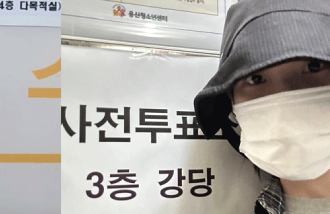Obligating Blank Trust System to High Level Public Officers
Obligating Blank Trust System to High Level Public Officers
Posted May. 17, 2004 22:11,
The blank trust system, in which lawmakers and high level public officers possessing more than 100 million won worth of shares are required to sell them or deposit them with trust companies, will become effective from next January at the earliest.
The Ministry of Government Administration and Home Affairs (MOGAHA) sent a legislative notice of revised public officer ethics law bill, which states that the president, the prime minister, the Assembly members, level one and higher MOGAHA officers, and those who have to publicize their assets according to ethics law if they own more than a certain amount of shares that they should sell or blank trust them.
The MOGAHA announced that they are considering over 100 million won (market price) as the amount of the trust deed. It plans to present the bill as soon as the 17th Assembly opens and will put it into effect from January 1, 2005.
Officers affected by the blank trust system should sell or blank trust the market value shares above 100 million won within a month.
▽According to the revised bill, officers who blank trusted their shares should entrust all rights to the trust company and cannot practice the rights.
For those who violate the law and employ shares by sharing information with trust companies, penal servitude of less than a year or a penalty of 10 million won or less will be applicable.
Also, those public officers who refuse to sell or blank trust can be fired or punished by the related minister, and lawmakers who refuse to act accordingly will be punished with penalties and their names will be made public.
▽Lawmakers who are a companys largest shareholders, such as Jung Mong-jun, will show their anger as their management right protection will be difficult due to the revised bill. Furthermore, no exceptions to the shares such as task relatedness and level two officers not being included will bring out criticism.
▽In Canada, the government administration cannot transact shares and should sell or blank trust their shares. It is similar to MOGAHAs revised bill except that they exclude senior and junior Parliament members.
The U.S. does not enforce blank trust to every officer. However, they obligate it to the president, vice president, and Congressman who cannot avoid a relationship with share holding companies even if they resign.
Japan stipulates a blank trust system as a ministerial norm. Therefore, the officers do not receive punishment although they violate it.
Hyun-Doo Lee ruchi@donga.com







